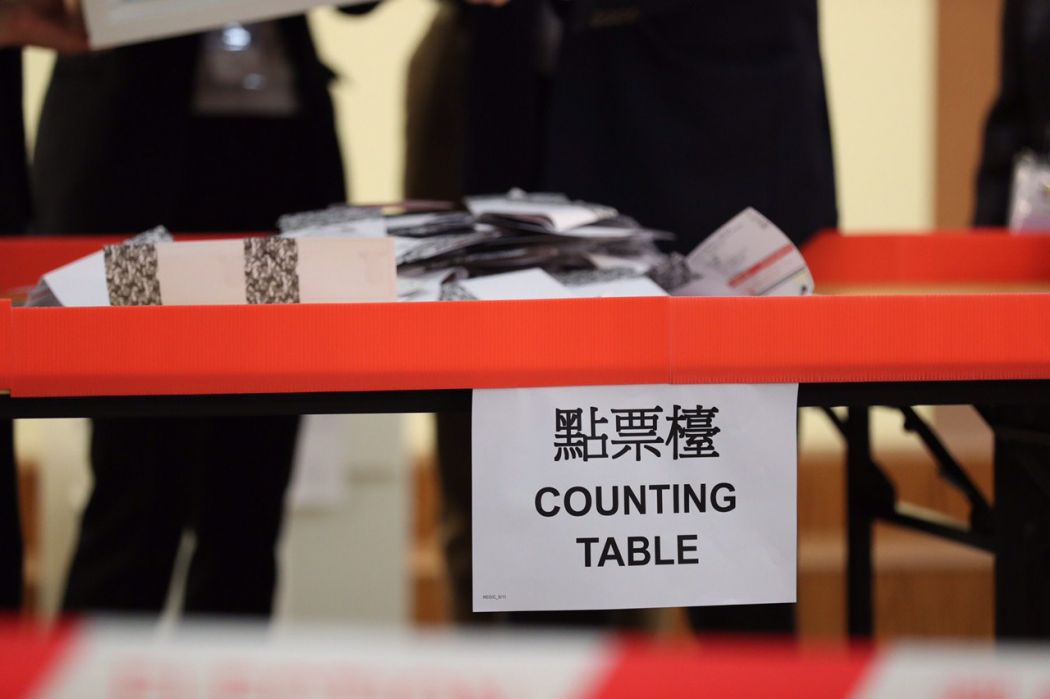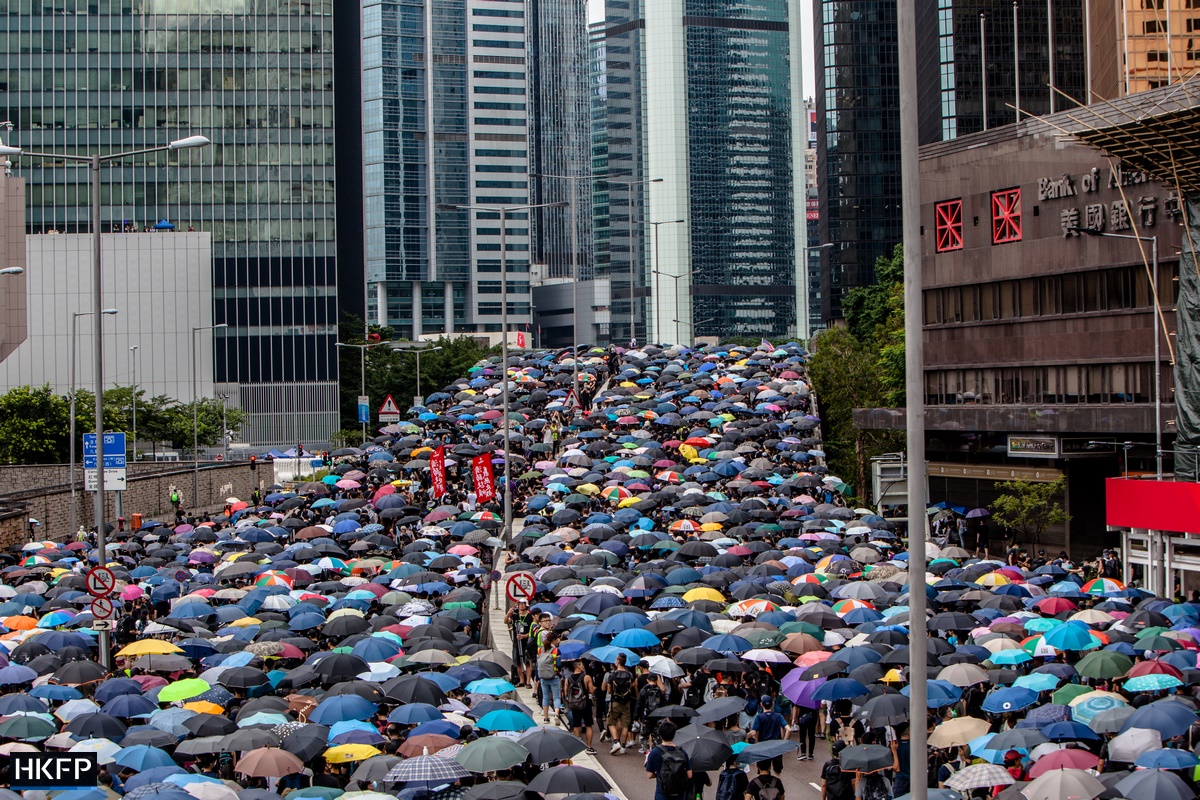With the 50-year lifespan of Hong Kong’s “one country, two systems” experiment just half-way through, China has moved to overhaul its electoral system to install what the authorities call a “new democratic electoral system with Hong Kong characteristics.” Nothing could be further from the truth.
By overhauling the methods of picking the Chief Executive and forming the Legislative Council (LegCo), the ruling Chinese Communist Party decided against keeping the city’s partial democracy unchanged and gradually moving towards full universal suffrage as envisaged in the Basic Law.

Gone are the promises of “Hong Kong people ruling Hong Kong.” Welcome to the new era of “patriots administering Hong Kong,” with the communist authorities playing a key role in determining who meets the criteria of patriots.
The electoral overhaul was approved by China’s national legislature, or National People’s Congress (NPC), in the form of a resolution at the end of its annual plenum in Beijing on Thursday. It sets out the general principles and the skeleton of the electoral system, leaving the details to be finalised by its Standing Committee at a meeting later this month or next month.
The Election Committee tasked with choosing the Chief Executive, whose membership will be increased from 1,200 to 1,500, has emerged as the central plank of the new system. Its original 1,200 members will still come from four sectors, namely commerce and finance, professionals, workers and grass-roots and political bodies such as lawmakers, with 300 seats for each.
The newly-added sector will be composed of local members of the NPC, of the Chinese People’s Political Consultative Conference, a national united front body, and members from Hong Kong branches of all-China associations such as women, youth and overseas Chinese. They are mainly picked by the central government’s Liaison Office in Hong Kong.

In addition to picking the Chief Executive, the Election Committee will be given new powers to elect a considerable number of members of the legislature. It will also be responsible for nominating candidates to stand in legislative races.
The number of LegCo members will be raised from 70 to 90.
The 90-member legislature will be returned by the Election Committee, by geographical constituencies and by functional constituencies, which include doctors and lawyers, bankers and nurses. Functional constituencies are expected to be given one-third of the seats, or 30. It is still unclear whether the remaining 60 will be equally shared by the other two or whether the Election Committee will get 40 seats, leaving only 20 to geographical constituencies.
Whatever the final share of geographical constituency seats, the strength of the pro-democracy camp will shrink further. Worsening their plight is a new vetting mechanism to be established for “reviewing and confirming the qualifications” of candidates for the Election Committee, the chief executive and the legislature. Details of the vetting body are unclear.
One thing is clear. The city’s democratic force, already the target of prosecution by the Hong Kong Government for involvement in the 2019 social movement and the LegCo primary election in July last year, is facing huge roadblocks in its political path.

The pro-democracy camp has consistently snapped up the majority of votes, or between 55 per cent to 60 per cent, in all previous “one-person, one-vote” geographical elections.
Under the existing LegCo with half of the members returned by functional constituencies that are tilted towards the business sector, the majority view in society is already under-represented. The gap between public opinion and the views in the legislature will only widen once the new system is in place.
The Beijing leadership has given up hope that Hong Kong’s existing “patriots” can beat the democrats and win a free and fair election. An overhaul is needed to ensure that most, if not all, seats go to the patriots on the pretext of excluding pro-independence and self-determination advocates from the legislature and district councils.
Furthermore, the democrats were blamed for the host of governance difficulties and heightened tensions in mainland-Hong Kong relations since the 1997 changeover, resulting in worsened socio-political conflict and the growth of “splittist” thinking in society, in particular among the youth.
The mass protests and political turmoil of 2019 and the democrats’ landslide victory in district council elections in November 2019 were the last straw. With its patience running out, Beijing moved to crush people it sees as opposing China and creating trouble in Hong Kong.

The electoral revamp follows the enactment of the national security law, which took effect on June 30 last year.
Both mainland and Hong Kong officials have hailed the law as a success in restoring social order. They feel confident the electoral revamp will be another success, this time in restoring political order.
With society becoming stable and political dissent silenced, they argue that the government will be able to solve economic and livelihood problems. And with the economy back to healthy growth and the quality of life improved, political agitation will cool down and democratic aspirations subside. Imbued with confidence about the success of their China model, or soft authoritarian rule, Beijing’s leaders are convinced it will also work in Hong Kong.
Whether Beijing’s huge gamble will pay off is too soon to tell. But it is already paying a huge price for curbing freedoms and scuttling the partial democracy in Hong Kong. Its promise to the people of Hong Kong and the world — to keep the city’s systems and freewheeling lifestyle unchanged for 50 years — has turned sour.
In Hong Kong, Beijing’s hardball tactics have alienated the mainstream, inflicting irreparable damage on the trust and confidence among the people and the international community towards China.

Beijing maintains it has no choice but to use the stick rather than the carrot, saying Hong Kong has posed a threat to national security. Most Hongkongers are still perplexed by such fears since they accept the fact that Hong Kong independence has never – and will never – be a real option.
Their modest wish is that the policy of “one country, two systems” will be implemented as they were originally promised. Instead, it has become a nightmare many would like to forget.
Speaking at a press conference in Beijing on Friday, the deputy director of the State Council’s Hong Kong and Macau Affairs Office, Zhang Xiaoming, likened the electoral overhaul to “minimally invasive surgery,” which would end turbulence and give the city a “speedy recovery.”
The danger, however, is that the electoral surgery is overkill, causing irreparable harm to the city in the short- and long-term.
Support HKFP | Policies & Ethics | Error/typo? | Contact Us | Newsletter | Transparency & Annual Report | Apps
| HKFP is an impartial platform & does not necessarily share the views of opinion writers or advertisers. HKFP presents a diversity of views & regularly invites figures across the political spectrum to write for us. Press freedom is guaranteed under the Basic Law, security law, Bill of Rights and Chinese constitution. Opinion pieces aim to point out errors or defects in the government, law or policies, or aim to suggest ideas or alterations via legal means without an intention of hatred, discontent or hostility against the authorities or other communities. |
Help safeguard press freedom & keep HKFP free for all readers by supporting our team

More HKFP OPINION:
HKFP has an impartial stance, transparent funding, and balanced coverage guided by an Ethics Code and Corrections Policy.
Support press freedom & help us surpass 1,000 monthly Patrons: 100% independent, governed by an ethics code & not-for-profit.










